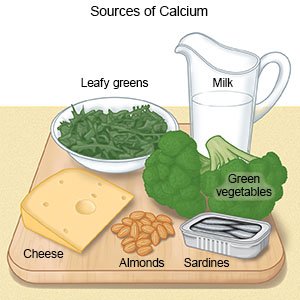Growth Hormone Deficiency in Children
Medically reviewed by Drugs.com. Last updated on Aug 4, 2025.
Growth Hormone Deficiency (GHD) is a condition that prevents your child's pituitary from making enough growth hormone. The pituitary is a gland in the brain. Growth hormone makes children and adolescents grow taller. Throughout life, it helps increase muscle mass and strengthens bones. Growth hormone also helps the liver and pancreas work correctly and stimulates the immune system. Your child may be born with GHD, or it may develop later.
DISCHARGE INSTRUCTIONS:
Call your child's doctor or endocrinologist if:
- Your child feels depressed or is having self-esteem problems from GHD.
- Your child has new or worsening symptoms.
- You have questions or concerns about your child's condition or care.
Medicine:
Your child may need either of the following:
- Human growth hormone (rhGH) is an injection your child will be given 1 time every day.
- Human IGF-1 is an injection that may be given if your child does not respond to rhGH.
- Give your child's medicine as directed. Contact your child's healthcare provider if you think the medicine is not working as expected. Tell the provider if your child is allergic to any medicine. Keep a current list of the medicines, vitamins, and herbs your child takes. Include the amounts, and when, how, and why they are taken. Bring the list or the medicines in their containers to follow-up visits. Carry your child's medicine list with you in case of an emergency.
Help your child manage GHD:
- Help your child develop self-esteem. Your child may have a hard time forming self-esteem that is not tied to physical appearance. Your child may feel different if he or she is shorter than others. He or she may also be shorter than brothers or sisters who are younger. Offer to listen to your child if he or she wants to talk about feeling different. Do not dismiss your child's feelings. Help your child focus on what he or she does well or likes about himself or herself.
- Give your child healthy foods that are high in calcium and vitamin D. Calcium and vitamin D work together to help your child's body make bones and keep them strong. Good sources of calcium are milk, cheese, broccoli, tofu, almonds, and canned salmon and sardines. Vitamin D is in fish oils, some vegetables, and fortified milk, cereal, and bread. Vitamin D is also formed in the skin when it is exposed to the sun. Ask your child's healthcare provider how much sunlight is safe for your child.

- Help your child be physically active. Physical activity can help build strong bones. It can also help prevent heart disease, diabetes, and other health problems. Your child should try to get 60 minutes of physical activity each day. His or her provider can help you create a physical activity plan for your child. The plan will include aerobic activity, such as walking, jumping rope, or riding a bike. The plan will also include activities to increase muscle, such as weightlifting.

Follow up with your child's doctor or endocrinologist as directed:
You may need to bring your child in to see an endocrinologist every 3 to 6 months. The dose of growth hormone may be adjusted at each visit. Your child may also need tests to check for diabetes. Growth hormone medicine can lead to diabetes in children who already have an increased risk. Write down your questions so you remember to ask them during your visits.
© Copyright Merative 2025 Information is for End User's use only and may not be sold, redistributed or otherwise used for commercial purposes.
The above information is an educational aid only. It is not intended as medical advice for individual conditions or treatments. Talk to your doctor, nurse or pharmacist before following any medical regimen to see if it is safe and effective for you.
Further information
Always consult your healthcare provider to ensure the information displayed on this page applies to your personal circumstances.
